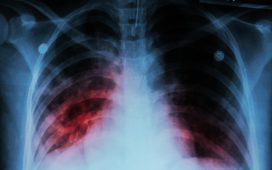Risk for ischemic heart disease elevated for initiators of tibolone or oral estrogen-progestin therapy
By Elana Gotkine HealthDay Reporter
THURSDAY, Dec. 5, 2024 (HealthDay News) — Use of tibolone or oral estrogen-progestin therapy is associated with an increased risk for specific cardiovascular diseases, according to a study published online Nov. 27 in The BMJ.
Therese Johansson, from Uppsala University in Sweden, and colleagues examined the effect of contemporary menopausal hormone therapy on the risk for cardiovascular disease according to the route of administration. The nationwide emulated target trial involved 919,614 women aged 50 to 58 years between 2007 and 2020 without hormone therapy use in the previous two years. Women were assigned to one of eight treatment groups.
Overall, 77,512 women were initiators of any menopausal hormone therapy and 842,102 women were noninitiators. The researchers found that tibolone was associated with an increased risk for cardiovascular disease compared with noninitiation (hazard ratio, 1.52) in intention-to-treat analyses. The risk for ischemic heart disease was increased for initiators of tibolone or oral estrogen-progestin therapy (hazard ratios, 1.46 and 1.21, respectively). The risk for venous thromboembolism was increased in association with oral continuous estrogen-progestin therapy, sequential therapy, and estrogen-only therapy (hazard ratios, 1.61, 2.00, and 1.57, respectively). In per-protocol analyses, tibolone was associated with a higher risk for cerebral infarction and myocardial infarction (hazard ratios, 1.97 and 1.94, respectively).
“We found that starting oral combined continuous therapy or tibolone was associated with an increased risk of cardiovascular disease within the first two years of initiation,” the authors write.
Copyright © 2024 HealthDay. All rights reserved.








